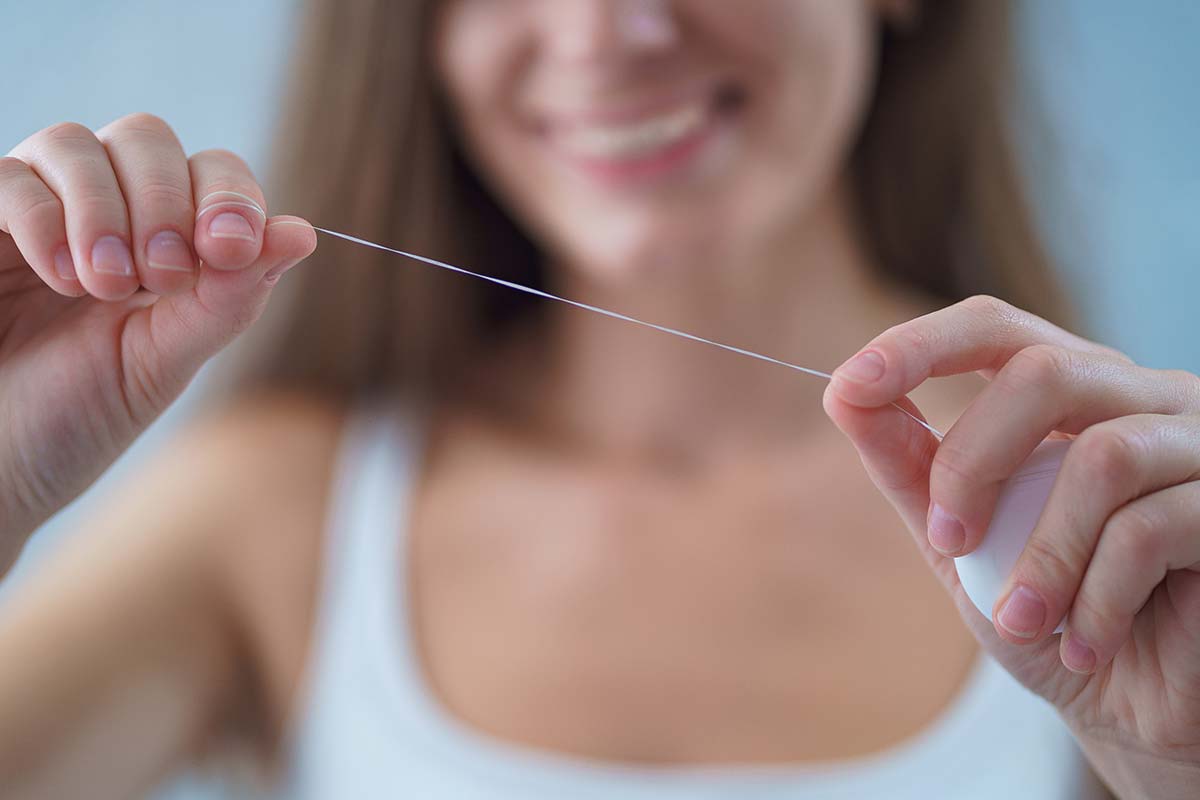Regular flossing is an essential part of oral care that helps to prevent the accumulation of plaque that can harden into tartar. The proper use of dental floss helps your teeth appear brighter through the removal of plaque and food debris that may not even be visible in your mirror or reachable by your toothbrush. Think of a carpet before and after vacuuming. All of the dust and dirt may not be completely visible, but once you have vacuumed the carpet, it appears brighter. The same goes for using dental floss on your teeth.
General Health Benefits of Flossing
Using dental floss regularly not only keeps your teeth healthy, but it can also be a positive contribution to your health in other ways. Periodontal disease affects the body in many negative ways, which makes it important to maintain good oral health.
It is believed that any type of infection, including an oral infection, can travel throughout the body and cause an inflammatory response. This can further lead to the development of blood clots and restricted blood flow to the heart. Flossing can help prevent these problems from happening.
Tips for Flossing Effectively
There are many valuable tips for flossing effectively. These flossing tips include:
- Learn proper techniques
- Floss whenever brushing
- Select the right floss
- Use dental flossers
- Use floss threaders for braces and bridges
1. Learn Proper Techniques
Using dental floss properly is a skill. But many people are never taught how to go about using it. Some people just rapidly move the floss in between their teeth, which is actually an ineffective way to floss. You can end up making your gums bleed this way.
One flossing tip to consider is to wrap a small amount of dental floss around your index fingers and leave an inch or two in between your thumbs and index fingers. Using your thumbs, gently move the dental floss between two teeth without rapidly or forcefully moving it.
2. Floss Whenever Brushing
Getting into a routine is very important whenever you floss your teeth. Since it may be easier to remember this way, just plan on using your dental floss each time you brush your teeth.
3. Select the Right Floss
There are several different types of dental floss. Nylon is the least expensive and most common type. One drawback is that nylon floss shreds easily. If this is a problem for you, you may want to use waxed nylon floss that is more shred resistant.
Another type of dental floss is known as PTFE floss. PTFE is a material that you are likely familiar with: Teflon. One great property of Teflon dental floss is that it is extremely resistant to shredding.
If you are environmentally conscious, you may want to go with silk floss that more readily breaks down.
4. Use Dental Flossers
Some people find that it is difficult to floss due to problems with their hands, like arthritis. Other people are simply clumsy. A dental flosser is a small plastic device that allows you to easily floss between teeth using only one hand. Dental flossers are designed to be discarded after one use.
5. Use Floss Threaders for Bridges or Braces
It can be almost impossible to floss when you have wires or bridges to deal with. Floss threaders are flexible plastic needles, typically made from nylon. You simply insert the floss into the threader’s loop, passing the threader over under any dental appliances. Then you floss normally.
Floss threaders are normally available in the dental care section of your local pharmacy or grocery store. They can be used with any type of dental floss. Many of them can be reused, while others are designed to be discarded after a single use. If your floss threader is reusable, make sure to clean it using warm water every time you use it.
Schedule Your Appointment at Lovett Dental Gulfgate
If you would like to receive more information about proper flossing tips and oral care or would like to schedule a dental cleaning, please call Lovett Dental Gulfgate at 713-847-8822 today. Our team of dental experts is ready to assist.







